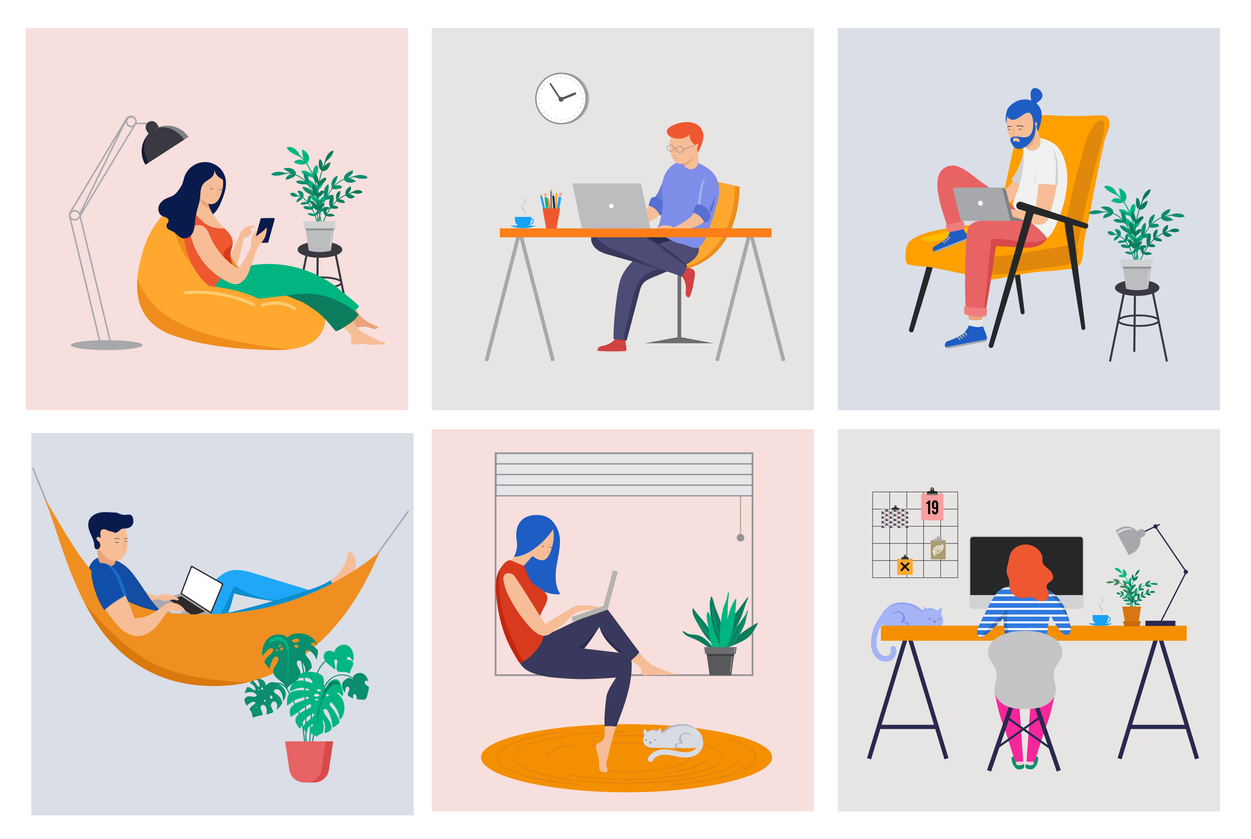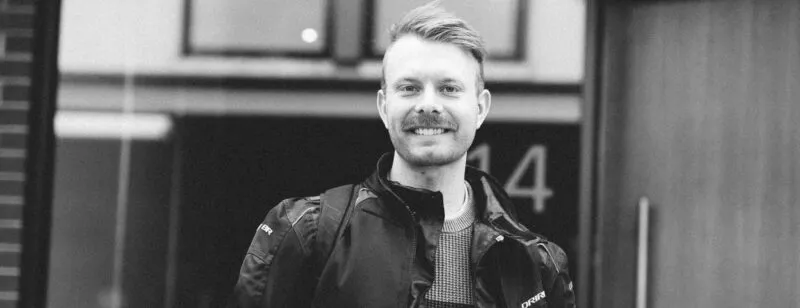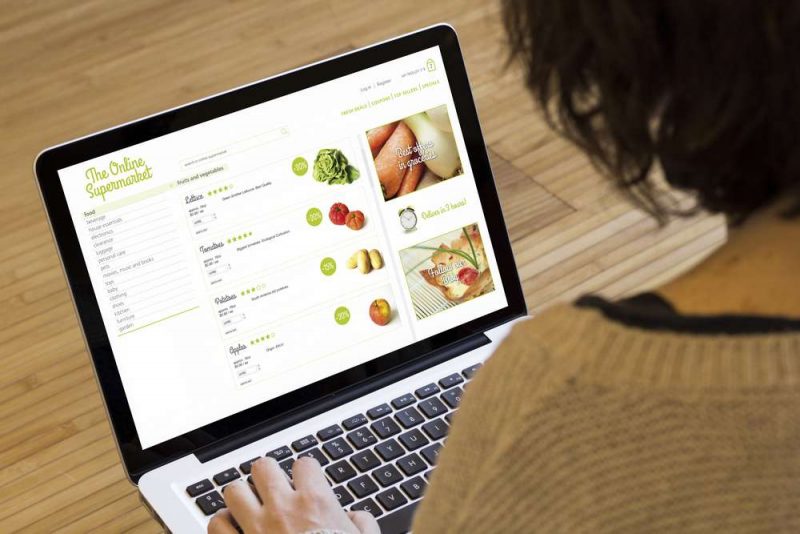Working from home is here to stay
It has been said that if you love what you do, you’ll never work a day. South Australians are more savvy than that. They know that work has its place, but there are many more important things. Like family, friends and even relaxing with nothing to do. We have such a wonderful lifestyle in South Australia, and the future of work will be about embracing it.
Much has changed in how we live in recent months with COVID-19 and the associated disruption to our normal way of life. Of particular note is how we work has been turned on its head. Working from home, shunned by many employers previously as too much of a risk to trust staff to work without supervision, has become the forced norm for organisations big and small. This has allowed managers and their teams to learn, experiment and gain some perspective moving forward.
Many managers are fearful of what this means for team productivity and bonding.
“I think in my case there are going to be a lot more requests from people to work from home. I think that could be very problematic. Having an individual deciding they want to work from home takes away from the rest of the group who are actually at work. You being over the shoulder where you can quickly ask a question or contribute… It’s almost like that individual is opting out of the broader team.”
RESEARCH PARTICIPANT
What has been interesting, is by and large South Australians have maintained a sense of connection. When measured at the end of April / start of May amongst 400 South Australians, 88% felt connected with their family. Many felt more connected than usual as they were regularly checking in via phone, zoom and other platforms to ensure their family were coping, and just to stay in touch as they had more time to spare. Similarly, those in paid employment generally felt connected with their work colleagues (81%). Many did not feel as connected with the community and their friends.
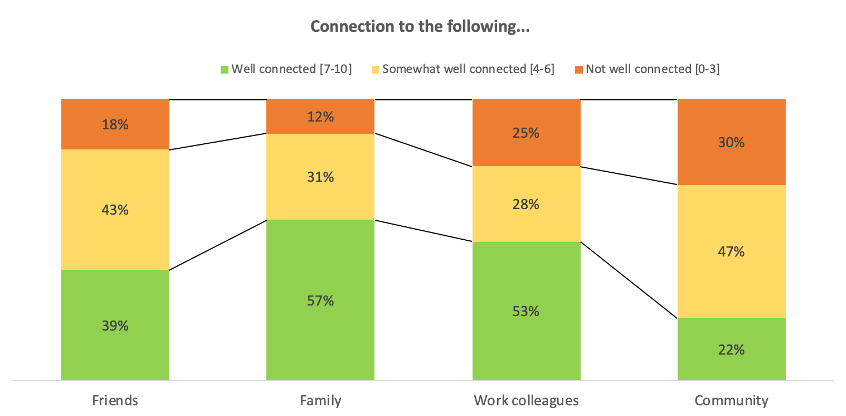
According to Square Holes’ current research on what Australians love to do, only 8% of South Australians surveyed love their work, 59% like their work overall, and 68% like their workmates. These are below the national survey of 2,000 Australians average of 67% liking their work and 72% their workmates. Work is no comparison to time with family, friends and relaxing with nothing to do.
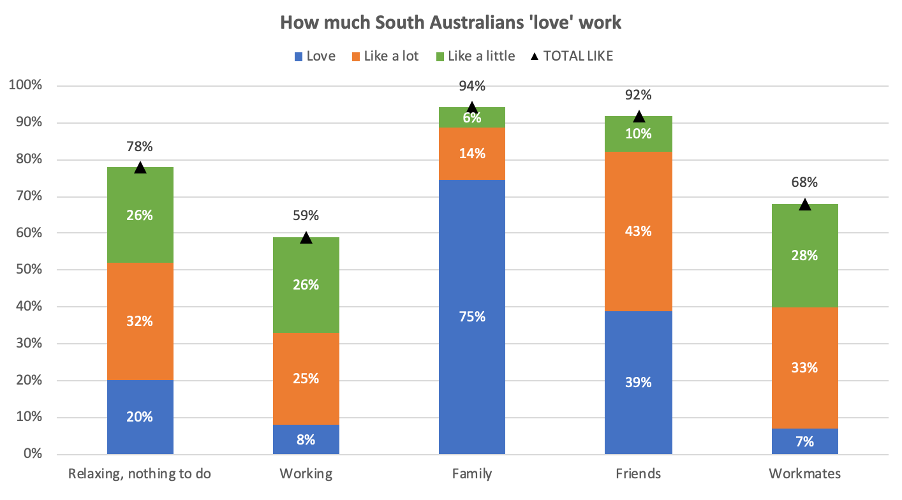
The pause of COVID-19 has taught South Australians about getting some perspective on what really matters, to stop and smell the roses. Spending 30 to 60 minutes commuting everyday was seen as a necessary norm, but now an unnecessary, time wasting drag.
“I’m enjoying not driving very much. I normally drive two hours a day for work, but now I am not driving. So I’m enjoying getting those two hours of my life back.”
RESEARCH PARTICIPANT
It will certainly be interesting to observe how workplaces will change moving forward, as organisations realise they do not need large offices with the costs, legalities and other hassles that come with them. Employees will increasingly lobby their managers to stick with the new normal of work-from-home, and away from the old normal of open plan, hot desking and the hustle and bustle of get up early, travel to work, tick, tick, tick, travel home, eat, go to bed, and repeat … every day.
In Square Holes’ rapid survey of 100 of its panel members in paid employment at the end of last week, 78% of those in paid employment have been able to work from home since social distancing practices were in place. Those able to work from home indicated an average of 81% of their last working week was working remotely. Prior to restrictions coming in, they noted that on average 21% of their working week was from home (i.e. one day in a five day week).
There is now an increased understanding of tasks best performed at home, or in an office. Working from home is viewed as better for independent free-thinking / creative tasks. An office is better for collaborative free-thinking / creative tasks. Critically, very few preferred remote working or office-based working completely irrespective of the task. It is about flexibility and balance.
“Things that take a lot of focused thinking and concentration, and require stretches of focused time to work on them are best to do away from the office.”
RESEARCH PARTICIPANT
“Most of my work is data entry related e.g. accounting and taxation return compilation. This can be done at home more effectively as there are no interruptions from clients and/or other staff.”
RESEARCH PARTICIPANT
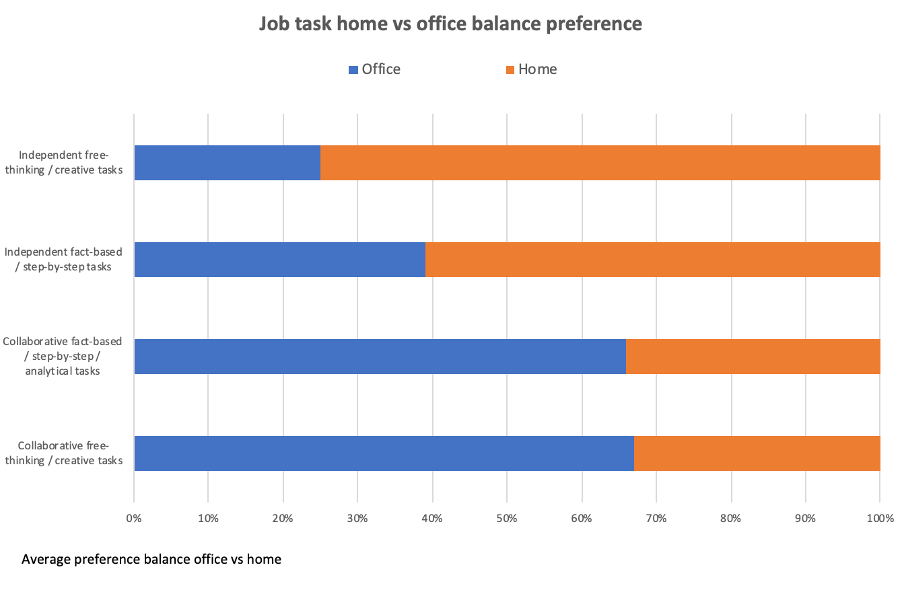
When asked what percentage of their working week they would prefer to work from home, the average percentage across the sample was to work remotely 58% of their week (i.e. 23 hours in a 40 hour work week), with some having notably different preferences depending on the nature of their job, home set-up and other factors.
The push towards greater balance in work, and freedom to work from home comes for many as a realisation of the positive impact on their mood, on less time in the office and more time to do the things that make them happy. Square Holes conducted analysis of its Mind and Mood survey data from the latest survey to identify factors having greater contribution to overall mood.
There is a close to direct correlation was an individual’s sense of mental health and their overall mood. When contributors to mental health were analysed, 1) physical health, 2) financial health and 3) family were correlated with an individual’s mental health in that order. Working from home has the potential of allowing more time for looking after one’s physical health and time with family, and will optimise the community’s mental health and overall mood.
“I’ve started riding my bike again more regularly because that’s what we can do to get out of the house. So I’ve been able to get on the bike. I started doing that last week and I’ve found that my mental health has just skyrocketed. It’s become so much better, so much more relaxed, more OK with everything that’s going on.”
RESEARCH PARTICIPANT
There is a heightened appetite for remote working and the mental health and other benefits it brings. Even so, there are pros and cons of home and office work environments.
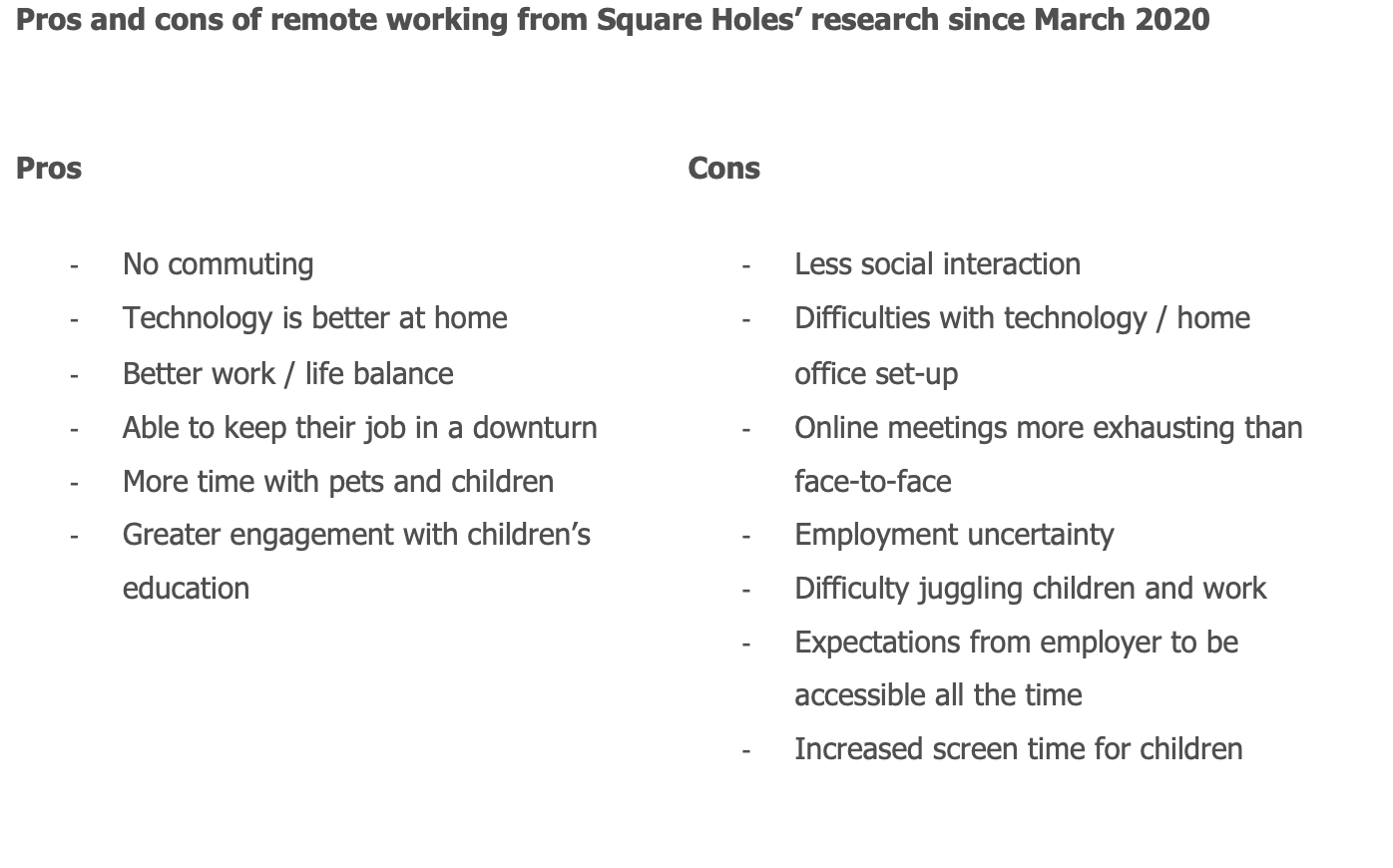
What is clear is the way in which we work will change for ever more. This will likely be one of, if not the single biggest, change in behaviour from COVID-19. This is likely to have ramifications on landlords and property owners as businesses need less space, as well as our central business districts and hubs, associated support hospitality, other businesses and the wider economy. Many businesses will need to reengineer their offerings or close.
Optimal office space design is also a matter of much confusion and uncertainty at present. How will the physical distancing of COVID-19, and more permanent changes in hygiene requirements and personal space demands, impact shared workplaces? Likely hot desking and open-plan offices that became so on trend over the past decades, will fade or change in design moving forward.
Homes will evolve with the work-from-home revolution. More fit for purpose home offices will become default in new builds. Demand will grow for real estate further away from the CBD as travel to the office moves away from a daily commute. Our regional towns will become more popular, as people choose physical isolation as a lifestyle choice. This trend had started pre-COVID-19 and will likely accelerate. Cities and the move toward urban infill will lose their appear for many.
Staff will demand improved work-life balance, and some employers will struggle to ensure all staff are productive, particularly if they have failed to build strong and trusting workplace cultures. The importance of strong positive cultures – with teams trusting their leaders, and leaders trusting their teams – has been discussed for the past decades. This will be a time to test the strength of the reality our workplace cultures, beyond the mission statement rhetoric. Workplace trust will be critical as we continue in this brave new world of flexible home-office work-life balance reality – the new normal.
